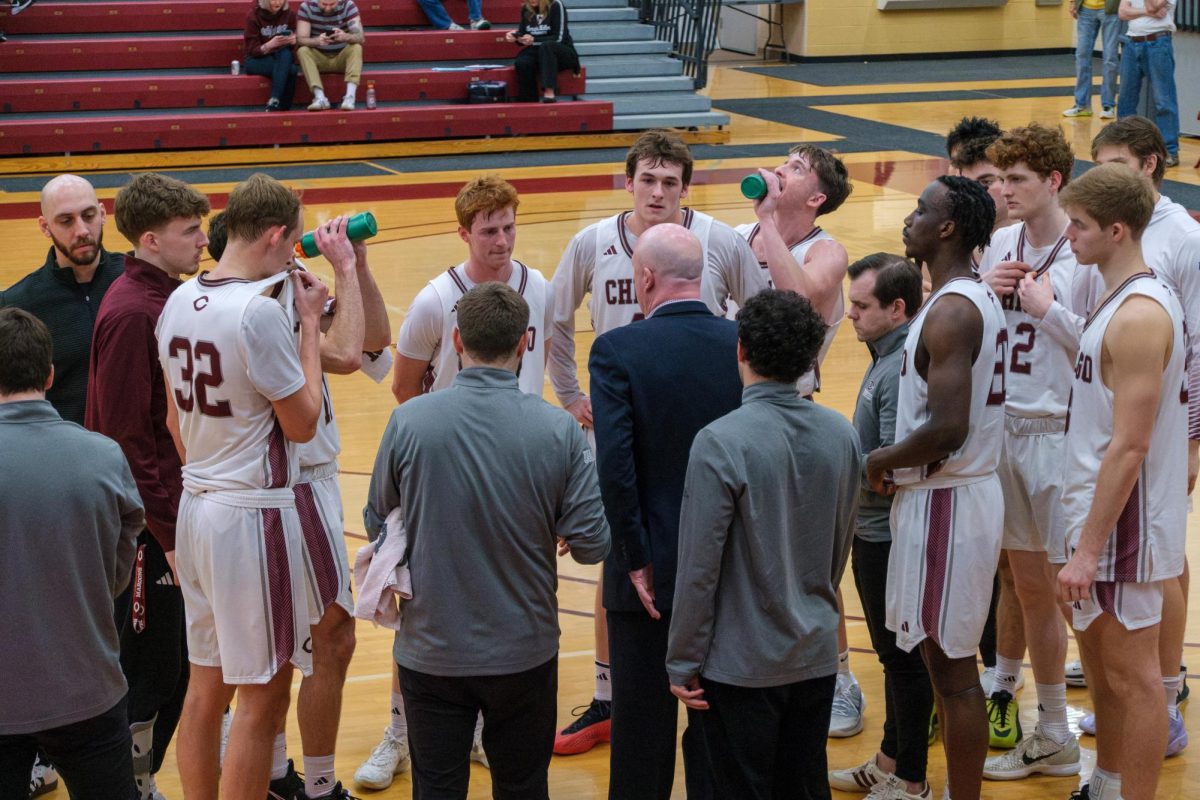Usually the stomping ground of baseball players, wrestlers, and track teams, Henry Crown Field House plays host to an entirely different group of athletes three afternoons a week: METROsquash, Chicago’s urban squash and education program.
“METROsquash is a nonprofit, urban, youth-enrichment program that combines academic tutoring with squash instruction after school,” METROsquash director Max Laverty said. “We use squash as the hook to get the kids interested in the program; the large goal is to get the kids to realize their academic potential.”
It’s no secret that Chicago Public School (CPS) students lag behind much of the country in academic performance. Even though the city has made great strides over the last 10 years—the dropout rate has fallen almost 10 percent—Chicago schools still post a 42.5-percent high school dropout rate. CPS students average a score of 17 on the ACT, four points lower than the national average, and score below the benchmark score on each of the test’s sections.
Working with kids from neighborhood middle and elementary schools Reavis, Kozminski, and Fiske, METROsquash provides a supplemental academic program aimed at helping students succeed in class and gain acceptance into the city’s top high schools. With the program in its fifth year, METROsquash has expanded to include a College Prep program that helps its high school students prepare for college.
“We aim for a two-to-one ratio of kids-to-tutors,” Laverty said. “With high school kids a one-to-one ratio. The goal is to get the ratio of students-to-teachers as low as possible to serve the kids as best as possible.”
And the program is working. Over its five-year history, METROsquash has seen significant gains in its students’ academic achievements. In its first year alone, 95 percent of METROsquash students improved their average grade by one letter or more. Last year, over 50 percent of METROsquash’s first class of eighth graders enrolled in one of Chicago’s selective enrollment high schools, which are designed for “academically advanced” students, according to the CPS web site.
METROsquash students also give back to South Side neighborhoods. The participating students averaged 12 hours of community service during the last academic year.
METROsquash is not alone in combining squash with academics. It was accepted into the National Urban Squash Education System in 2006, one year after its founding, joining nine sister programs located predominately in East Coast cities. All of the programs offer academic assistance alongside squash instruction, spending roughly half of their time in the classroom and half of their time on the squash courts.
Recently, METROsquash has been working with the Order of the C, the varsity lettermen’s club, to provide even more personalized academic tutoring. With this new assistance, METROsquash has nearly achieved its goal of a one-to-one ratio between students and tutors.
“The Order of the C also helps to get the kids to realize there are very smart athletes in college,” Laverty said, calling this a “secret message.”
Besides its academic successes, METROsquash also boasts some outstanding athletic achievements. Last year, 10 METROsquash students attained U.S. Squash national rankings. To achieve a national ranking, an athlete must play and perform well in at least four nationally-ranked tournaments during the year.
Over the weekend before Thanksgiving, METROsquash hosted an open U.S. Squash National tournament at Henry Crown, a nationally-ranked event featuring athletes from four states, including 15 from METROsquash. At the end of the tournament, eight METROsquash athletes finished within the top four of their age groups.
In the U17 Boys division, Christian Williams and Don Hall came in first and second, respectively. Among U15 Boys, Keshawn Idris finished second and Jordan Collins was fourth. Johnathan Montgomery finished second in U13 Boys. Valencia Scaife took second in the U15 Girls competition and Khadijah Mohammed finished third. Kareemah Betts took third in U17 Girls.
Throughoutthe year, METROsquash athletes will travel to 10 tournaments, half of which will be outside of Illinois. All of these trips are funded through donations to METROsquash; the athletes themselves incur no expenses.
While METROsquash is certainly impressive statistically both on the court and in the classoom, the words of the student athletes are perhaps the best testament to the program’s success.
“Since my first day, I loved squash,” Valencia Scaife, a ninth-grader, said. “Squash is the best sport I have ever played; it has helped me with everything. Since I have been in METROsquash, they have helped me with schoolwork and fitness. Now my grades are up.”








